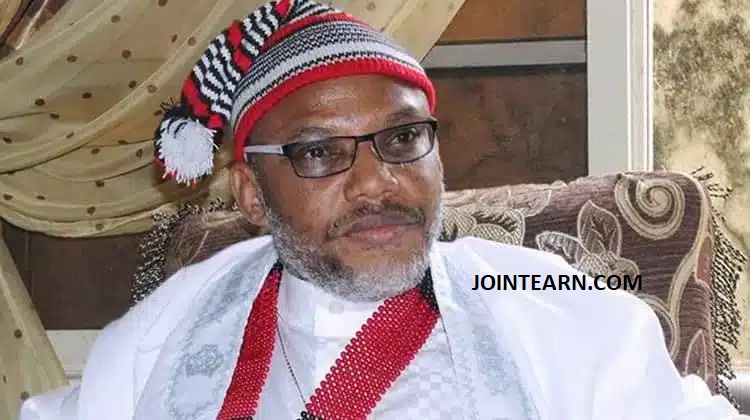Osogbo, Osun State – The National Executive of the National Union of Local Government Employees (NULGE) has officially expressed its backing for the decision made by its Osun State chapter to withdraw services in protest against the ongoing local government crisis in the state. This decision, which has seen the cessation of services by local government employees, has sparked widespread discussions, with both supporters and critics weighing in on its potential impact on governance and the people of Osun.
The Osun chapter of NULGE made the dramatic move earlier this week in response to what it called the continuous erosion of local government autonomy and the failure of the state government to address key issues affecting local government workers. The union’s action has intensified the ongoing crisis between the Osun State Government and the leadership of the local government workers, as tensions rise over the alleged mismanagement of local government affairs and the non-payment of workers’ entitlements.
NULGE’s National Executive Statement of Support
Following the Osun chapter’s announcement, NULGE’s National Executive swiftly issued a statement expressing full support for the decision taken by its Osun chapter. The National President of NULGE, Comrade Akeem Ambali, in his statement, emphasized that the action was a necessary step in the fight for the protection of local government workers’ rights and the preservation of the autonomy of local government councils in the state.
“After careful deliberations and consultations with the leadership of our Osun chapter, the national executive of NULGE fully supports the decision to withdraw services. The withdrawal of services is a legitimate response to the continuous suppression of local government autonomy and the long-standing issues faced by workers in the local government sector,” Comrade Ambali said.
Ambali further expressed concern over what he described as the systematic undermining of local government institutions, noting that the inability of the Osun State Government to resolve the crisis, coupled with the non-payment of workers’ salaries and allowances, had pushed the workers to a breaking point.
“The local government system is the closest to the people, and it should be managed in a way that reflects the needs of the people it serves. Unfortunately, over time, the local government system has been manipulated, and the welfare of the workers has been neglected,” Ambali added. “This strike is not just about unpaid wages; it is about the recognition of the importance of local government autonomy, the dignity of workers, and the commitment to good governance at the grassroots level.”
The Underlying Crisis in Osun Local Governments
The ongoing crisis in Osun local governments stems from a long-standing dispute between the state government and local government workers. The dispute revolves around issues such as the illegal dissolution of elected local government councils, alleged mismanagement of local government funds, and the non-payment of salaries and allowances owed to workers.
The Osun State Government had dissolved all elected local government councils earlier in the year, replacing them with appointed caretaker committees. This move was met with heavy criticism from local government workers, who argued that it not only violated their constitutional rights but also undermined the principle of democratic governance at the grassroots level. Furthermore, the union accused the state government of failing to release the necessary funds to run the local councils effectively, resulting in an inability to pay workers’ salaries for several months.
As tensions continued to mount, local government workers in Osun staged protests and issued ultimatums for the resolution of the crisis. However, their calls fell on deaf ears, prompting the Osun chapter of NULGE to declare the strike action as a last resort.
The strike, which began earlier this week, has led to the disruption of several essential services in the state, including sanitation, health services, and education. Many residents of Osun have expressed concern about the consequences of the strike, with some lamenting the negative impact it has had on daily life.
The Impact of the Strike on Osun Residents
The strike action has had an immediate effect on the residents of Osun, as the local government workers are responsible for the provision of critical services such as waste management, healthcare, and primary education. With the strike in full swing, local governments have been unable to deliver these services, leading to a noticeable deterioration in sanitation and a decline in the availability of health services.
Several residents in Osogbo, the state capital, have voiced frustration over the disruption of services. Some have expressed concerns about the increase in refuse collection backlogs, which could result in public health issues, particularly in densely populated urban areas. Others have complained about the lack of support for public schools, as teachers and other education staff have been affected by the ongoing industrial action.
While some residents have sympathized with the local government workers’ demands, others have criticized the timing of the strike, particularly given the current socio-economic challenges in the country. They have questioned the effectiveness of the withdrawal of services in achieving a resolution, given the wider context of the national economic crisis.
“We understand the plight of the workers, but we are also concerned about how the strike is affecting us as ordinary citizens. The lack of waste collection is becoming a serious problem, and we are worried about public health,” said Kemi Adeola, a resident of Osogbo. “At the same time, we sympathize with the workers’ grievances, as they deserve to be treated fairly and have their rights upheld.”
State Government’s Response
In response to the strike, the Osun State Government, led by Governor Adegboyega Oyetola, has expressed disappointment and concern. The state government has called on the leadership of NULGE to reconsider the decision to withdraw services, emphasizing that efforts are being made to resolve the issues surrounding local government management and workers’ welfare.
Governor Oyetola, in a press release issued on Wednesday, stated that the state government had been working to address the grievances of local government workers, particularly with respect to the payment of outstanding salaries. He also assured the public that the dissolution of local government councils and the establishment of caretaker committees were done in the best interest of the state and in compliance with the law.
“The government recognizes the importance of the local government system, and we are committed to ensuring that workers are fairly compensated and that services are delivered efficiently. We are engaging in ongoing discussions with the union to resolve these issues amicably,” Oyetola said.
Despite the state government’s assurances, however, many observers believe that the dispute between the Osun State Government and NULGE may not be easily resolved without significant concessions. The involvement of the national body of NULGE further escalates the situation, signaling the growing unrest within the union and the potential for further industrial actions in the future.
Looking Ahead: Resolution or Escalation?
As the strike continues, the future of the local government system in Osun State remains uncertain. Both sides are holding firm to their positions, with the state government asserting its right to oversee local government affairs and the union demanding the restoration of autonomy and the payment of outstanding wages.
The next steps in resolving the crisis will depend on continued dialogue between the state government and NULGE. However, with both parties entrenched in their positions, there is a growing sense that more drastic measures may be needed to bring about a resolution.
For now, Osun State residents face the consequences of the ongoing strike, while the rest of the country watches closely to see how the situation unfolds. Will the state government be able to meet the demands of the workers and restore peace, or will the situation escalate further? Only time will tell.











